 STERLING
STERLING
New York
An Imprint of Sterling Publishing
387 Park Avenue South
New York, NY 10016
STERLING and the distinctive Sterling logo are trademarks of Sterling Publishing Co., Inc.
2011 by Sterling Publishing Co., Inc.
All rights reserved. No part of this publication may be reproduced, stored in a retrieval system, or transmitted, in any form or by any means, electronic, mechanical, photocopying, recording, or otherwise, without prior written permission from the publisher.
Cover design by Yeon Kim
Book design by Brenda Gates
ISBN 978-1-4027-8649-5
eBook ISBN 978-1-4027-9723-1
Library of Congress Cataloging-in-Publication Date Available.
For information about custom editions, special sales, and premium and corporate purchases, please contact Sterling Special Sales at 800-805-5489 or specialsales@sterlingpublishing.com.
2 4 6 8 10 9 7 5 3 1
www.sterlingpublishing.com
Y ou are holding what is thought by some to be the oldest book in the worldvenerated for more than three thousand years as a work of philosophy and mysticism, and an oracle for divining the future. There is no doubt that it is one of the most important books ever to come from the Asian world, and the most enduring one: it has remained in print and in use continuously since its first appearance.
The particulars of the books early history are somewhat hazynot surprising for a work that has been around for so long. What does seem clear is that it was one of five classic texts edited by Confucius (whose wisdom is included in the appendices of this edition), who said that he wished he had another fifty years of life to study it.
Why is it known as the Book of Changes? The underlying theme of the I Ching is changeand consulted in the proper spirit, it will never fail to help you negotiate the inevitable changes in every aspect of your life, from travel and career to love and marriage. Changeeven when we know it is for the bestcan be daunting and confusing. When is it time to move on? Where is the path to success? The I Ching reassures us that change is at the very heart of nature, and that to remain in harmony with the natural world, we must embrace change. And whether or not you believe, as the ancients did, that this book contains the specific answers to all of your personal questions, it can help you find that harmony, make the move you know inside yourself is the right one, and achieve clarity about the situations you find yourself in. You could call the I Ching the first interactive self-help manual ever written!
Perhaps you think there is no logic to the notion of tossing quarters to determine your future. Think about it this way: by relying on chance to select the hexagram to consult, you relinquish control over your fate for a minute or two, acknowledging that there might be higher powers in the universe than your own. This kind of letting go, of humbling yourself, is very much in keeping with the tenets of Chinese philosophy. Can you sense how casting your lot in the traditional manner might make you feel more in tune with the world around you, more receptive and clearer about what you need to do? If so, then you will want to study the instructions for tossing the coins that follow. And even if not, there is much to be gained from absorbing the wisdom of the I Ching hexagram by hexagram, and reflecting on how each might apply to your life.
This edition of the I Ching was translated by the eminent Sinologist James Legge and includes his groundbreaking original introduction and notes, as well as the appendices usually attributed to Confucius. Legges approachexamining the text less as a work of mysticism than as a calculated and insightful work of politicsprovides invaluable historic context. Knowing where the text came from and the circumstances under which it was written will only enhance your respect for this versatile and profound document.
Heres what makes this particular edition of the I Ching different. Throughout the text (including Legges introductory material), ideas and concepts that might hold particular interest for todays reader have been highlighted to help guide you productively through the book. And following each hexagram are a few sentences of interpretation and commentary specifically geared toward the contemporary mindset. These passages, called Unlocking the Hexagram, arent meant to be reductiveonly to provide food for thought and a modern window into an allegorical (some might say cryptic) text.
This is your I Ching, and each time you study a hexagram, youll want to record the question you posed and reflect on the answer that emerges. Whether you toss the coins in order to determine which hexagram to study next, or just pick one at random, take some time to reflect on the ambiguities and mysteries you find within it, and pull out what is most useful to you.
Turning to the I Ching is the first step on a profound inner journey. Enjoy the insights and peace of mind that come from opening yourself to this extraordinary and enduring work of history, philosophy, and prophecy.
Laura Ross
Using
the I Ching
to Find
Answers |
T he I Ching has been used to divine answers to lifes large and small questions since before the Common Era, and there are a variety of ways to go about it. Using the text for guidance can be as simple as emptying your mind of everything except the matter that concerns you, flipping to a hexagram at random, and applying its wisdom to the situation you have in mind. If your basic interest in the Book of Changes is as a source of timeless wisdom, rather than as a mystical oracle, this is a very good way to choose a new hexagram to think (and write) about each day, or as often as you like. Whether you believe in its magical properties, youll find lots of guidance and good advice within the pages of the I Ching.
A much more complex method of deriving the hexagram that answers your question is the tossing of fifty yarrow stalks. This is the oldest and most traditional method, developed more than a thousand years ago (but clarified and made practical during the Song Dynasty, 11301200). If you are an I Ching purist, this may be the method for youbut be aware that it involves thirteen steps to derive each of the six lines of the hexagram, along with intricate transcription and calculation. It takes at least an hour and a lot of concentration to toss the yarrow stalks properly; the particulars of the technique can be found in a variety of books or at one of the many I Chingrelated websites.
Today, most people prefer the coin-toss method of divination, developed during the Tang Dynasty (618907), so that is the one we describe here. All you need to perform this technique is three like coins (quarters work nicely), a clean sheet of paper, a pen or penciland a quiet room.
- Write your question at the top of the paper and hold it in your mind, trying to focus only on it and emptying your head of other distractions.
- Shake the three coins between your palms a few times, and cast them onto the table randomly.
- Derive a number by counting the head side of a coin as 3 and the tail side as 2, and adding up the three values. (For example, if you have one head and two tails showing, your number will be 7: 3+2+2.) Write down the number about halfway down the page on which you wrote your question.
- Cast the coins five more times and calculate the number the same way each time, writing down each number above the previous one. Then, opposite each

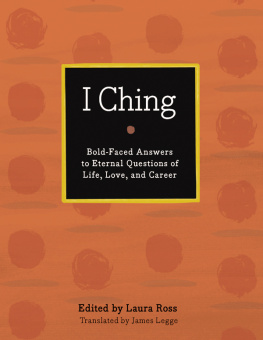
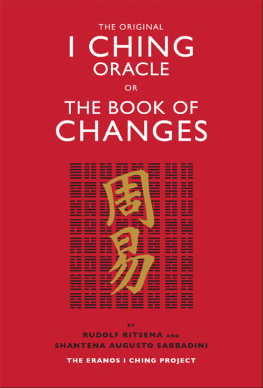
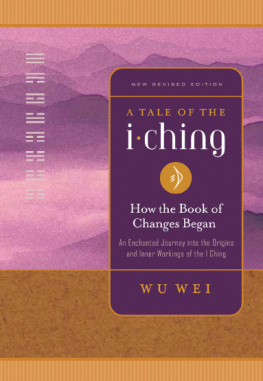
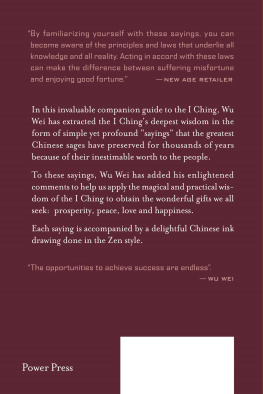

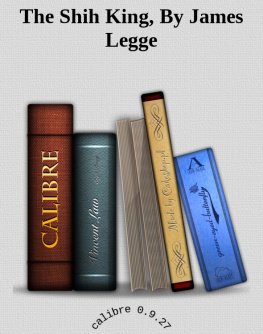
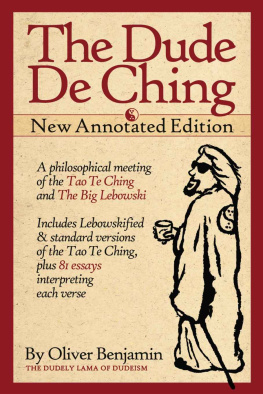
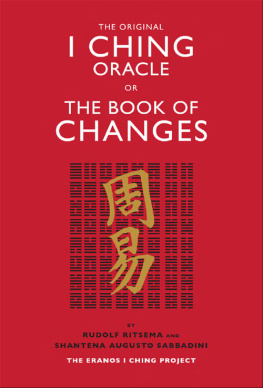
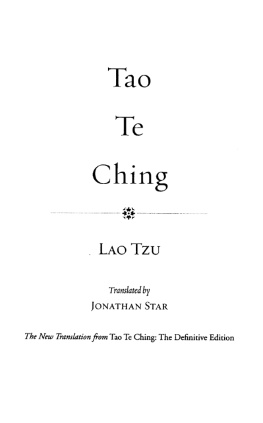


 STERLING
STERLING